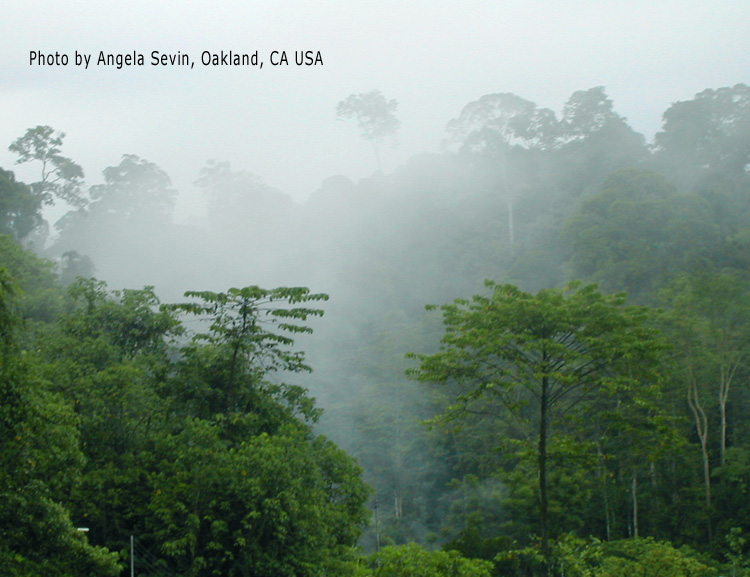Pleistocene environmental fluctuations had well-characterized impacts on the patterns of within-species divergences and diversity in temperate habitats. Here the impact the Pleistocene had on widely distributed forest vertebrates in a tropical system where the distribution of the habitat was affected by those fluctuations is examined. A comparative phylogeographical analysis of 28 non-migratory, forest-dependent vertebrates was conducted, and compared them to hypothetical phylogenies based on independent geological data and climate models. Results suggest a dynamic history, including recurrent population extinctions and replacements and a strong priority effect for local populations. Evidences indicate that proximity was more important than the presence of palaeorivers for dispersal of forest taxa between landmasses. informacion[at]ebd.csic.es Leonard et al (2015) Phylogeography of vertebrates on the Sunda Shelf: a multi-species comparison. J Biogeogr DOI: 10.1111/jbi.12465
http://onlinelibrary.wiley.com/doi/10.1111/jbi.12465/abstract
Welcome
Welcome to the official website of the Doñana Biological Station (EBD-CSIC)...

The Doñana Biological Station: EBD-CSIC
The Doñana Biological Station is a public Research Institute belonging to the Spanish Council for Scientific Research CSIC in the area of Natural Resources...

Mission
Our fundamental mission is to carry out multidisciplinary research of the highest standard directed to understanding the way in which biodiversity is generated, maintained and deteriorates, as well as the consequences of its loss...

Our methods
We apply many techniques within a multidisciplinary framework, from molecular genetics to remote sensing, and from modelling to physiological and isotopic analyses...

Monitoring the environment
Monitoring biodiversity at the Doñana Natural Space cover a wide range of communities, including both terrestrial and aquatic organisms...

Aims
Our aims include the study of the ecological and evolutionary processes by combining field work, mathematical and statistical models and physiological and genetic analysis...
 News
News
 Las altas temperaturas están provocando que las lagunas y las marismas de Doñana pierdan agua rápidamente
Las altas temperaturas están provocando que las lagunas y las marismas de Doñana pierdan agua rápidamente
 Traffic noise causes lifelong harm to baby birds
Traffic noise causes lifelong harm to baby birds
 Illegal wildlife trade, a serious problem for biodiversity and human health
Illegal wildlife trade, a serious problem for biodiversity and human health
 Urbanization and loss of woody vegetation are changing key traits of arthropod communities
Urbanization and loss of woody vegetation are changing key traits of arthropod communities
The loss of woody areas is linked to a decline in the duration of the activity period, a higher tolerance to drought, and less dispersal capacity in both groups.






